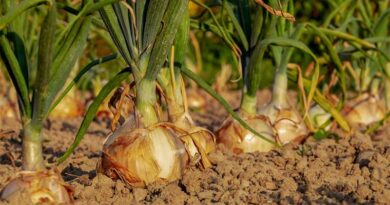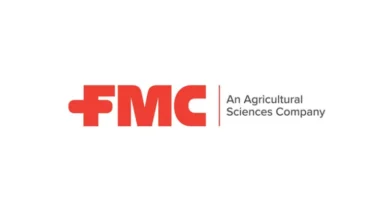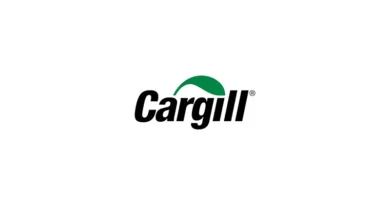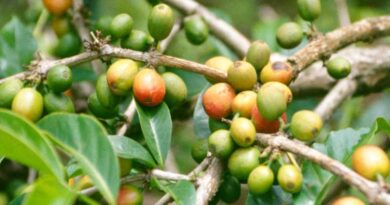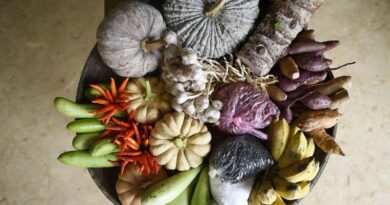Overcoming the new environmental requirements of the agri-food industry without losing profitability
08 October 2022, USA: The new sustainability strategies of the agri-food industry bring with them new demands for agricultural suppliers, which force farmers into practices like stimulating crops in a sustainable way to avoid soil erosion and reducing the need for water and dependence on synthetic products. In this article, we will be revealing how to do this without harming the economy of your farm.
WHY DO WE TALK ABOUT SUSTAINABILITY?
A fact: 42% of consumers consider sustainability to be an important issue. Another fact: 46% would choose a brand that was recognized as sustainable. Both are data from the SAP and Qualtrics study, carried out on April 22 on the occasion of International Mother Earth Day.
Another survey carried in out in 2020 by the OCU (Consumers and Users Organization) of Spain, together with other European consumer organizations, concluded that more than 70% took environmental aspects into account when consuming food. Plus, most wanted sustainability information to be mandatory on labels.
As we can see, consumer expectations have changed. In addition to quality and health benefits, citizens value sustainable modes of production. As a result, the agri-food industry and large distribution chains have been implementing strategies for some time that are reaching out to their agricultural suppliers to bring sustainability to their entire chain.
Here are some examples:
Supermarket company Lidl has set itself the goal of promoting sustainable agriculture and is already working alongside GLOBALG.A.P, one of the most internationally recognized standards in agricultural production, to create the first European standard for the preservation of biodiversity in fruit and vegetable cultivation. This company collaborates with around a hundred suppliers of summer fruit employing more than 5,400 farmers.
This practice is not a fad but an unquestionable trend, and more and more supermarkets are setting environmental requirements for producers. In many cases, this takes the form of certificates that guarantee sustainable food production, like the organic farming certificate.
Other distribution chains implement similar practices, alongside companies such as Nestlé, Knorr and Coca-Cola. Coca-Cola, for example, assessed the sustainability of some of its citrus suppliers by measuring parameters such as carbon footprint, water footprint, soil erosion, water consumption for irrigation and the use of plant protection products.
Nestlé is also working with its suppliers to implement sustainable agricultural practices, supporting farmers as they adapt to climate change and new environmental standards. 92% of the most important vegetables in Knorr products are also grown sustainably.
These are just a few examples. It is becoming increasingly common for large supermarket chains to impose environmental requirements on producers, often in the form of certificates guaranteeing sustainable food production, such as the organic farming certificate.
TOOLS FOR SUSTAINABLE AGRICULTURE
Faced with this demanding scenario, what solutions do farmers have? Fortunately, nowadays we have the knowledge and technology that allow us to create tools that help farmers improve the sustainability of their farms.
At Symborg, for example, we have made biotechnology available to agricultural producers. That means that we have been able to create new solutions for crop nutrition and stimulation, increasing profitability for the farmer and reducing the environmental footprint.
How have we done this? For years we have been researching the microorganisms that inhabit the soil and the interactions between them and with plants, and we have studied how they benefit plant growth and development. As a result, we provide farmers with an extensive catalog of sustainable biological inoculants, biofertilizer and biocontrol solutions.
What are the benefits of our solutions? Here are some of them:
They obtain higher nutritional content from plants.
They stimulate the growth of the root system of plants and improve soil structure.
They increase resistance to biotic and abiotic stresses, which decreases dependence on other synthetic inputs.
They increase the ability to protect the plant against pathogens.
They fix atmospheric nitrogen.
They contribute to improving soil structure.
We know that this is a crucial moment for the agri-food sector, conditioned by new regulations on sustainability and requirements, to which must be added industry and consumer demand, but we are convinced that more sustainable agriculture is possible. We know how to do this and are ready to help you address this new challenge. Count on us!
Also Read: India signs deal with Dubai company to improve DAP and NPK supply
(For Latest Agriculture News & Updates, follow Krishak Jagat on Google News)





